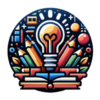Crafting a compelling resume as a college student can be a challenging yet vital step toward launching your professional career. This article offers strategic guidance to help you create an effective resume that highlights your skills, experiences, and academic achievements.
Understanding the Purpose of Your Resume
Your resume is more than just a list of experiences; it’s a tool to market yourself to potential employers. It’s crucial to understand that your resume should be tailored to showcase how your unique experiences and skills make you an ideal candidate for the positions you are applying for.
Start with a Strong Objective or Summary
Objective:
An objective statement is useful if you clearly know the job or industry you are targeting. It should be concise and specific to your interest in the role or field.
Summary:
A summary statement is ideal if you have a range of experiences and skills. It’s a brief paragraph that highlights your key attributes and how they relate to the professional world.
Highlighting Education
As a college student, your educational background is one of your strongest assets.
Placement:
Place your education section near the top of your resume, especially if you have limited work experience.
Details to Include:
- Your degree (including major and minor, if applicable)
- The name of your college or university
- Graduation date (or expected graduation date)
- GPA (if it’s above 3.0)
- Relevant coursework, academic honors, and projects
Emphasizing Work and Internship Experience
Even part-time jobs or internships can demonstrate important skills.
How to List Them:
- Start with the most recent position.
- Include the job title, name of the organization, location, and dates of employment.
- Use bullet points to describe your responsibilities and achievements.
Focus on Achievements and Skills:
Quantify your achievements with numbers wherever possible and highlight skills you developed that are transferable to the job you’re applying for.
Showcasing Extracurricular Activities
Participation in clubs, sports, or other activities can demonstrate valuable skills.
What to Include:
- Leadership roles in student organizations
- Participation in sports teams or performing arts
- Volunteer work
Making Connections:
Draw connections between these activities and the skills they helped you develop that are relevant to your career goals.
Skills Section
A separate skills section can showcase your abilities that are relevant to the job.
Technical Skills:
Include any software or tools you are proficient in, especially those commonly used in your field of interest.
Soft Skills:
While harder to quantify, soft skills like teamwork, communication, and problem-solving are highly valued by employers.
Writing and Formatting Tips
Consistency:
Ensure your resume has a consistent font, size, and layout format.
Brevity:
Keep it concise. One page is ideal for college students.
Action Words:
Use strong action verbs to begin each bullet point in the experience and activities sections.
Proofreading:
Grammar and spelling errors can be a major turnoff for employers. Proofread your resume multiple times.
Utilizing University Resources
Leveraging university resources is pivotal for college students to craft an impactful resume. Most universities provide a career services center with experienced counselors specializing in resume building and career advice. These professionals can offer personalized feedback on your resume, suggesting improvements and highlighting your strongest assets. Additionally, career services often host workshops and seminars focused on resume writing, interview preparation, and job search strategies. These events are invaluable for gaining insights into current market trends and networking with professionals and alumni. Furthermore, universities often provide access to online tools and databases for job searching and skill development, which can be particularly useful for refining specific areas of your resume. By taking full advantage of these resources, students can significantly enhance the quality of their resumes, better positioning themselves for successful job applications and career advancement.
Tailoring Your Resume for Each Application
Tailoring your resume for each job application is a critical strategy in the job search process. This personalized approach demonstrates to potential employers that you’ve invested time in understanding their specific needs and how your skills and experiences align with them.
To begin, thoroughly analyze the job description. Identify key skills and qualifications the employer is seeking. Use this as a guide to prioritize and highlight relevant experiences in your resume. For instance, if a job emphasizes leadership and project management, foreground experiences where you led a team or managed projects, even if they were in a collegiate setting.
Next, adapt your language to match the industry or company culture. Utilizing keywords and phrases from the job listing can be particularly effective. This shows your attention to detail and helps optimize your resume for Applicant Tracking Systems (ATS), which many companies use to pre-filter resumes.
Moreover, adjust your professional summary or objective to reflect the specific role you’re applying for. This bespoke introduction can instantly capture the employer’s attention, setting the tone for the rest of your resume.
Lastly, remember that each experience you list should underscore how it contributes to the role. Quantify achievements wherever possible and articulate how these experiences have equipped you with the skills necessary for the position at hand.
This tailored approach requires more effort but significantly increases your chances of standing out in a competitive job market, demonstrating a proactive and thoughtful mindset to potential employers.
The Importance of a Cover Letter
A cover letter is an essential complement to your resume, providing a more detailed narrative of your professional journey. Unlike a resume, which primarily showcases skills and achievements in a concise format, a cover letter offers the opportunity to directly address the employer and articulate why you are the ideal candidate for the position. It allows you to explain in more depth how your experiences, education, and skills make you a perfect fit for the job and gives you a chance to convey your enthusiasm for the role and the organization.
In your cover letter, you can also address any aspects of your career path that may not be immediately clear from your resume, such as gaps in employment or a change in career focus. This personal touch can significantly affect how your application is received.
Moreover, a well-crafted cover letter demonstrates your ability to communicate effectively, a highly valued professional skill. By writing a thoughtful and tailored cover letter for each application, you show potential employers that you are genuinely interested in the position and have invested effort in presenting your best self.
Final Words
In conclusion, crafting an effective resume and cover letter as a college student is vital in bridging the gap between your academic experiences and the professional world. By understanding the purpose of your resume, starting with a strong objective or summary and highlighting your education, work, and extracurricular experiences, you set the foundation for a compelling narrative of your capabilities. The importance of tailoring each application cannot be overstated; it shows prospective employers your dedication and suitability for the specific role. Remember to leverage your university’s resources, as they can provide invaluable guidance and support.
The cover letter is your opportunity to breathe life into your application, allowing you to elaborate on your resume and really sell your unique story. It’s your chance to connect with the employer more personally and show why you’re a perfect fit for the job.
Ultimately, your resume and cover letter are more than just documents; they are reflections of your professional identity and aspirations. Keep them updated as you progress in your career, and continue to tailor them to each new opportunity. With these tools well-crafted, you’re ready to take confident steps towards your professional future.

